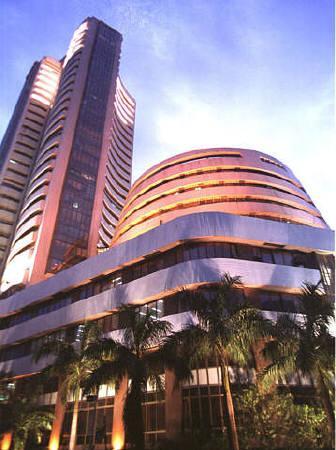
The Union government, the largest owner of stocks in the country, was also easily the largest loser in the stock market last year.
According to an analysis by BS Research Bureau, the government holding in 71 listed firms fell by a whopping Rs 5.17 lakh crore (Rs 5.17 trillion) in 2011.
The government's loss accounted for 26.5 percent of the total paper wealth erosion of Rs 19.5 lakh crore (Rs 19.5 trillion) on the Bombay Stock Exchange this year.
At the beginning of the year, the government held shares worth Rs 15.87 lakh crore (Rs 15.87 trillion) in these companies.
At Friday's close, the value of this holding was down to Rs 10.7 lakh crore (Rs 10. 7 trillion). At 32 per cent, government's loss was higher than the 27 per cent lost by the BSE universe.
. . .

The government's share of the market also fell to 20 per cent from 21.75 per cent a year ago.
Of these 71 companies, 34 are large ones widely held and frequently traded, and are part of the BS 200. The government's BS 200 portfolio accounted for a majority of its paper wealth erosion by a whopping Rs 3.75 lakh crore (Rs 3.75 trillion) this year.
The government's BS 200 portfolio underperformed the Sensex, losing 29 per cent of the Rs 12.90 lakh crore (Rs 12.90 trillion) it started the year with.
Of these 34 firms, which included state-owned lenders, only three, Petronet LNG (25 per cent), Indraprastha Gas (10 per cent) and Power Grid (two per cent), ended the year with gains. Even Coal India, one of the few large-caps that weathered the storm of 2011, lost 4 per cent this year.
Among the biggest wealth destroyers for the government are the largest lender State Bank of India (SBI), MMTC, NMDC and ONGC.
. . .

The government lost over Rs 62,831 crore (Rs 628.31 billion) in MMTC, which has a low free float and fell sharply.
The value of the government's 59.4 per cent holding in SBI fell Rs 44,944 crore (Rs 449.44 billion) or 42.4 per cent. In ONGC, it lost a little more than Rs 42,000 crore (Rs 420 billion) and about Rs 41,695 crore (Rs 416.95 billion) in NMDC.
In comparison, large private sector groups lost much less. Mukesh Ambani's Reliance Industries saw a market-cap erosion of about Rs 1.1 lakh crore (Rs 1.1 trillion).
Tata Group firms lost nearly Rs 87,000 crore (Rs 870 billion). Anil Ambani-owned Reliance lost over Rs 61,000 crore (Rs 610 billion).
At Rs 58,000 crore (Rs 580 billion), Gautam Adani's Adani Group was the other big loser among corporate groups.
. . .

J Venkatesan, who manages the PSU opportunities fund for Sundaram Mutal fund, said the PSU asset class was a victim of some "intended and unintended" policy moves by the government.
"In general, the PSU asset class is considered a defensive asset class. In a falling market, it should have held its own. But, this year has been unique because there was fear the government may use the large cash holding of these PSUs to fund its fiscal deficit."
Venkatesan said the proposed cross-holding plan added to the lack of policy moves, which led to a fall in the broader market. "Otherwise, the PSUs have fallen in line with the broader market."
Analysts say a lot of the damage is the government's own doing as it developed cold feet on crucial reforms such as FDI in multi-brand retail, insurance, etc.
The government was also not able to pass the Companies Bill in the Winter session of Parliament.
. . .

Within the PSU space, different sectors suffered different overhangs, according to analysts. In the energy space, fuel subsidies leading to losses for oil marketing companies has been a negative.
PSU bank stocks have taken a beating due to worries over a higher incidence of non-performing liabilities. A recent report by Enam Securities said PSU banks would face margin pressures due to asset-quality risks and inability to pass on the rate hikes.
In the metals space, SAIL and NMDC have lost 56 per cent and 42 per cent of their value, respectively. Analysts attributed this to "expansion plans getting delayed and deterioration showing in vital parameters".
But, cheap valuations, high cash on balance sheets and a good dividend track record may see these stocks through in the new year. However, the uncertainties surrounding the divestment programme need to be solved.
Sailav Kaji of Padmakshi Financial Services said, "I don't see further downside. Valuation-wise, they have become cheap. But, the lingering issues must be addressed."